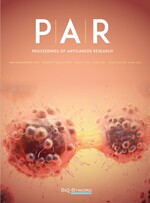Abstract
Objective: To determine the risk factors of infection in patients with nephrotic syndrome. Methods: A retrospective study was conducted on 155 patients with nephrotic syndrome under our department from January 2019 to December 2019. Among them, 43 cases had infection, and the rate of infection was 27.74%. The risk factors of infection were analyzed. Results: Among the 155 patients with nephrotic syndrome, 43 cases developed infection, including 3 cases of upper respiratory tract infection (6.98%), 33 cases of lower respiratory tract infection (76.74%), 3 cases of skin infection (6.97%), 3 cases of urinary tract infection (6.97%), and 1 case of facial nerve infection (2.32%). Compared with the group without infection, the group with infection had lower serum albumin and immunoglobulin G (IgG) levels as well as higher serum creatinine and 24-hour urinary protein levels (P < 0.05). Multivariate logistic regression analysis showed that decreased serum albumin (odds ratio [OR] = 1.14; P < 0.01) and IgG (OR = 1.1; P < 0.144) were independent risk factors for infection. Conclusion: Respiratory infection is the most common infection in nephrotic syndrome, and the decrease in serum albumin and IgG are independent risk factors for infection.
References
Cutolo M, Seriolo B, 2008, Use of Glucocorticoids and Risk of Infections. Autoimmun Rev, 8(2): 153–155.
Waldman M, Crew RJ, Valeri A, et al., 2007, Adult Minimal-Change Disease: Clinical Characteristics, Treatment, and Outcomes. Clin J Am Soc Nephrol, 2: 445–453.
Shinzawa M, Yamamoto R, Nagasawa Y, et al., 2013, Age and Prediction of Remission and Relapse of Proteinuria and Corticosteroid-Related Adverse Events in Adult-Onset Minimal-Change Disease: A Retrospective Cohort Study. Clin Exp Nephrol, 17: 839–847.
Maas RJ, Deegens JK, Beukhof JR, et al., 2017, The Clinical Course of Minimal Change Nephrotic Syndrome with Onset in Adulthood or Late Adolescence: A Case Series. Am J Kidney Dis, 69: 637–646.
Fenton A, Smith SW, Hewins P, 2018, Adult Minimal-Change Disease: Observational Data from a UK Centre on Patient Characteristics, Therapies, and Outcomes. BMC Nephrol, 19: 1–8.
Ozeki T, Ando M, Yamaguchi M, et al., 2018, Treatment Patterns and Steroid Dose for Adult Minimal Change Disease Relapses: A Retrospective Cohort Study. PLoS ONE, 2018: 13.
Yamamoto R, Imai E, Maruyama S, et al., 2020, Incidence of Remission and Relapse of Proteinuria, End Stage Kidney Disease, Mortality, and Major Outcomes in Primary Nephrotic Syndrome: The Japan Nephrotic Syndrome Cohort Study (JNSCS). Clinical and Experimental Nephrology, 2020: 6.
Lee H, Kim DK, Oh K-H, et al., 2013, Mortality and Renal Outcome of Primary Glomerulonephritis in Korea: Observation in 1943 Biopsied Cases. Am J Nephrol, 37: 74–83.
Xu Q, 2011, To Analyze the Incidence and Influencing Factors of Nephrotic Syndrome Complications, thesis, Fujian Medical University.
Ogi M, Yokoyama H, Tomosugi N, et al., 1994, Risk Factors for Infection and Immunoglobulin Replacement Therapy in Adult Nephrotic Syndrome. Am J Kidney Dis, 24: 427–436.
Gulati S, Kher V, Gupta A, et al., 1995, Spectrum of Infections in Indian Children with Nephrotic Syndrome. Pediatr Nephrol, 9: 431–434.
Singh JA, Hossain A, Kotb A, et al., 2016, Risk of Serious Infections with Immunosuppressive Drugs and Glucocorticoids for Lupus Nephritis: A Systematic Review and Network Meta-Analysis. BMC Med, 14(1): 137.
Ye WL, Tang N, Wen YB, et al., 2016, Underlying Renal Insufficiency: The Pivotal Risk Factor for Pneumocystis Jirovecii Pneumonia in Immunosuppressed Patients with Non-Transplant Glomerular Disease. Int Urol Nephrol, 48(11): 1863–1871.
Vaziri ND, Pahl MV, Crum A, et al., 2012, Effect of Uremia on Structure and Function of Immune System. J Ren Nutr, 22(1): 149–156.
Yoon JW, Gollapudi S, Pahl MV, 2006, Naive and Central Memory T-Cell Lymphopenia in End-Stage Renal Disease. Kidney Int, 70(2): 371–376.
Girndt M, Sester M, Sester U, et al., 2001, Molecular Aspects of T- and B-cell Function in Uremia. Kidney Int Suppl, 78: S206–211.
Massry S, Smogorzewski M, 2001, Dysfunction of Polymorphonuclear Leukocytes in Uremia: Role of Parathyroid Hormone. Kidney Int Suppl, 78: S195–196.
Smogorzewski M, Massry SG, 2001, Defects in B-Cell Function and Metabolism in Uremia: Role of Parathyroid Hormone. Kidney Int Suppl, 78: S186–189.
Li J, Zhang Q, Su B, 2017, Clinical Characteristics and Risk Factors of Severe Infections in Hospitalized Adult Patients with Primary Nephrotic Syndrome. J Int Med Res, 2017: 30.
Lim CC, Liu PY, Tan HZ, et al., 2017, Severe Infections in Patients with Lupus Nephritis Treated with Immunosuppressants: A Retrospective Cohort Study. Nephrology (Carlton), 22(6): 478–484.
Lionakis MS, Kontoyiannis DP, 2003, Glucocorticoids and Invasive Fungal Infections. The Lancet, 362(9398): 1828–1838.
Wang Y, Wang J, 2015, Clinical Observation of Glucocorticoid Combined with Compound ?-Keto Acid in the Treatment of Primary Nephrotic Syndrome. Journal of Practical Medicine, 31(19): 3185–3188.
Li X, Hao L, Wang D, 2015, Bone Metabolism in Patients with Nephrotic Syndrome and the Early Effects of Corticosteroids. Journal of Anhui Medical University, 50(4): 495–499.
Chen L, Dong H, Xu S, 2018, Clinical Characteristics and Risk Factors of Nephrotic Syndrome Complicated with Severe Infection. Journal of Kidney Disease and Dialysis Kidney Transplantation, 27(1): 18–23.
Yang Q, Zhang L, Zhang Z, 2015, Application of Immunosuppressive Agents in the Treatment of Pulmonary Infection After Kidney Transplantation. Tissue Engineering Research in China, 19(2): 262–266.
Wang X, Xue W, Ding X, 2015, The Significance of ATP Level in CD4+ T Lymphocytes in Individualized Immunosuppressive Therapy of Renal Transplant Recipients. Chinese Journal of Organ Transplantation, 36(8): 453–457.
Chen L, Delzell E, Baddley JW, et al., 2011, Initiation of Tumor Necrosis Factor Alpha Antagonists and the Risk of Hospitalization for Infection in Patients with Autoimmune Diseases. JAMA, 306(21): 2331–2339.
Grijalva CG, Kaltenbach L, Arbogast PG, et al., 2010, Initiation of Rheumatoid Arthritis Treatments and the Risk of Serious Infections. Rheumatology (Oxford), 49(1): 82–90.
